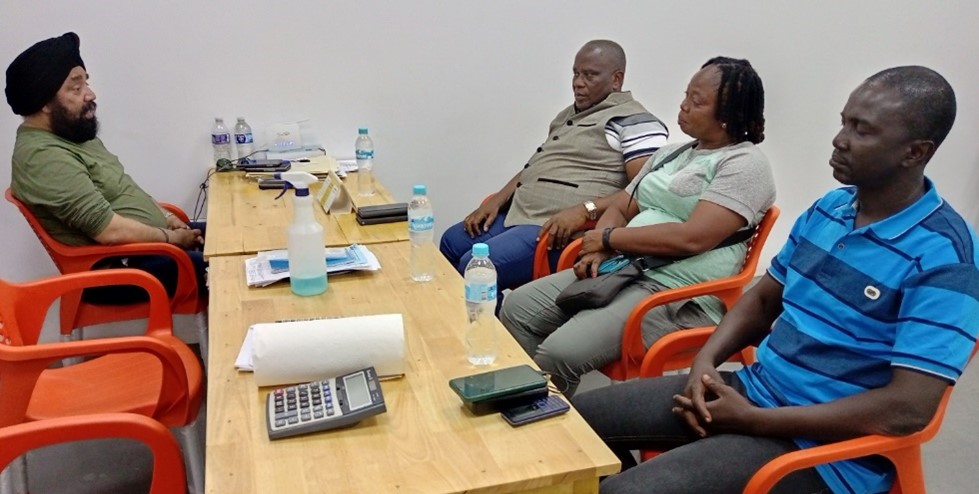In Margibi County, Liberia, rubber planters are making a strong case for the government to maintain its ban on the exportation of unprocessed rubber. This stance has been vividly expressed by leadership from the Rubber Planters Association of Liberia (RPAL) and the Rubber Development Fund Incorporated of Liberia (RDFI). Following a meeting with prominent Indian businessman, Upjit Singh Sachdeva, locally known as Mr. Jetty, who has recently acquired the Salala Rubber Corporation, there is a growing consensus among stakeholders on the importance of this ban. They argue that the shipment of unprocessed rubber not only deprives the nation of potential job opportunities but also threatens the local economy and undermines the welfare of farmers, pushing them into a precarious situation.
President Wilhelmina G. Mulbah Siaway of RPAL emphasized the need for the Liberian government to reinforce the existing ban, stating that allowing unprocessed rubber to leave the country could lead to job losses and operational risks within the industry. She urged the government to take guidance from Cote D’Ivoire, which has enacted a law to ensure that all rubber produced domestically is processed locally. By doing so, Liberia would not only capitalize on its natural resources but also create employment opportunities through manufacturing rather than exporting raw materials.
The moratorium on unprocessed rubber export was initially enacted to safeguard the local rubber industry, allowing a brief two-month period for the export of rubber already at ports before the ban was reinforced. However, key stakeholders like former Deputy Speaker Tokpah John Mulbah have voiced concerns that this grace period has now expired. He stressed the necessity for the government to intensify enforcement of the moratorium and monitor any potential shipments to ensure compliance with local regulations. With the guidance from countries like Ivory Coast, there is a push to establish stable prices for local farmers, aiming to empower them similar to their counterparts in neighboring regions.
Furthermore, the sentiment expressed during the meeting with Mr. Jetty highlighted the critical societal impact of the rubber industry’s operation in Margibi. The closure of the Salala Rubber Corporation had previously resulted in significant job losses, affecting over 850 workers and their extended families. This led to widespread hardship, forcing many to seek work elsewhere. Mr. Jetty’s intervention is viewed as a pivotal moment for the community, providing renewed hope and stability at a time when it was greatly needed.
The visit also served to solidify Mr. Jetty’s integration into the local rubber industry, as he was congratulated on becoming a formal member of RPAL. His decision to revive operations at Salala has been met with relief by community members who had been struggling since the closure. This support for local employment and processing is a crucial step toward revitalizing the region’s economic situation and maintaining the stability of the rubber sector in Liberia.
In the broader context, the discussions surrounding the ban on unprocessed rubber reflect an inherent desire to protect and bolster Liberia’s agricultural sectors. Stakeholders are advocating for strategic implementations that mirror successful agricultural frameworks from the region, emphasizing that the local economy depends heavily on such actions. By focusing on processing rubber domestically and creating value-added products, there is potential to not only secure jobs but also to enhance Liberia’s standing in the global rubber market. Such collective efforts will be key to ensuring that Liberia can leverage its rich natural resources for the long-term benefit of its people.


